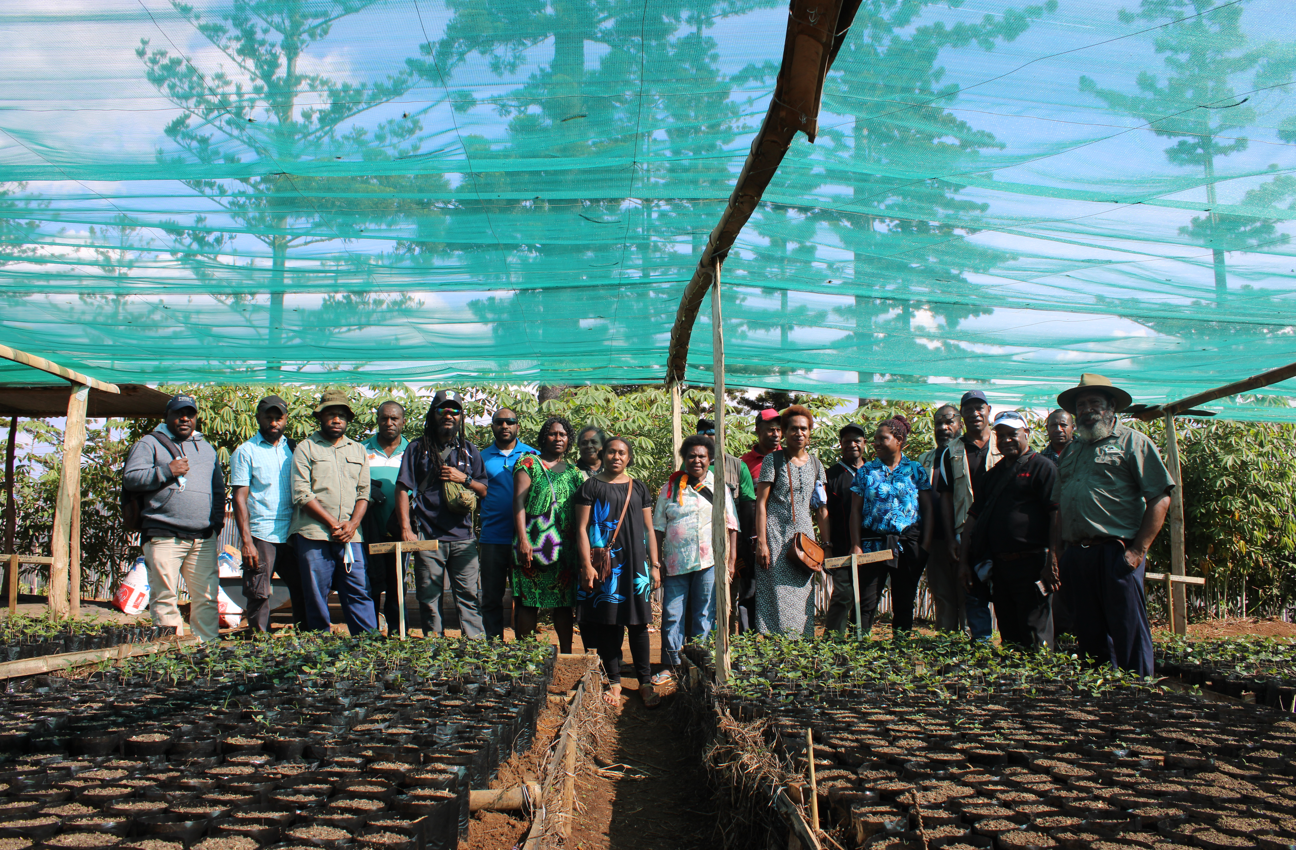The Successful Graduation and Conclusion of the One Health Frontline FETPNG Pilot Program
Written by Trinidad Velasco Ortuzar - 13th of August, 2024
Thirteen dedicated individuals from Cohort 5 have successfully completed the One Health Frontline FETPNG pilot program, marking the end of a successful initiative focused on building a multisectoral health workforce.
Cohort 5 Graduates
In June of this year, the final cohort of the One Health Frontline FETPNG pilot program celebrated their graduation in Goroka, Eastern Highlands Province. The dedication and effort of these fellows have been exceptional. Thirteen participants from diverse sectors—human, animal, environmental, and plant—successfully completed the program and showcased their field projects, which addressed pressing provincial health issues such as TB, malaria, respiratory syncytial virus, food safety, African swine fever, poisonous birds, fish production, and the integration of respectful wildlife management with cultural traditions.
As part of their 3rd workshop, the fellows embarked on a field trip to the University of Goroka, where they explored an integrated sustainable farming project led by Heriso Gahekave. This model encompasses a range of activities, including horticulture, citrus cultivation, coffee production, and livestock management, featuring poultry, piggery, aquaculture, and apiculture. Additionally, the group visited a local water treatment plant, where they learned about water purification processes and the importance of clean water for public health. These experiences offered invaluable insights into effective resource management, environmental health, and the vital connections between human and animal health.
Fellows and faculty toured the integrated sustainable farming project at the Sepik Campus of the University of Goroka, guided by Mr. Gahekave (first from the right).
Fellows and faculty at the water treatment plant.
Stories from the Program
Emma Kitan joined the program as a fellow from Cohort 3 in Morobe Province. Since then, she has continued her journey as a junior faculty member, offering remarkable insights and experience from environmental, wildlife, and conservation perspectives. Hear more from Emma in the videos below.
Expanding Horizons
The success of the program has not gone unnoticed. Several provinces, including West Sepik, Jiwaka and the National Capital District, are incorporating the program into their provincial budgets for 2025. Additionally, West New Britain Province is collaborating with funding partners to secure support for a second cohort and East Sepik has just been notified they have secured funding to roll out the first cohort of the One Health frontline FETP in their province.
The demand from provinces to expand the program underscores the positive impact and the growing recognition of the importance of equipping frontline workers across all sectors with the essential knowledge and skills to prevent, predict, detect, and respond to health threats. The resulting informal One Health networks that have emerged from the training program are highly valued by the graduates and the provinces and have resulted in sharing of information, early notifications, and joint investigations
To match the demand for the program and extend its benefits to additional provinces, there is an urgent need for increased funding. Expanding the program will develop a cadre of disease detectives from multiple sectors throughout the country who are able to inform evidence based decision making to improve the health of people, animals, plants, the environment and wildlife and ensure that more communities benefit from the development of a multisectoral frontline workforce.
About Field Epi in Action



